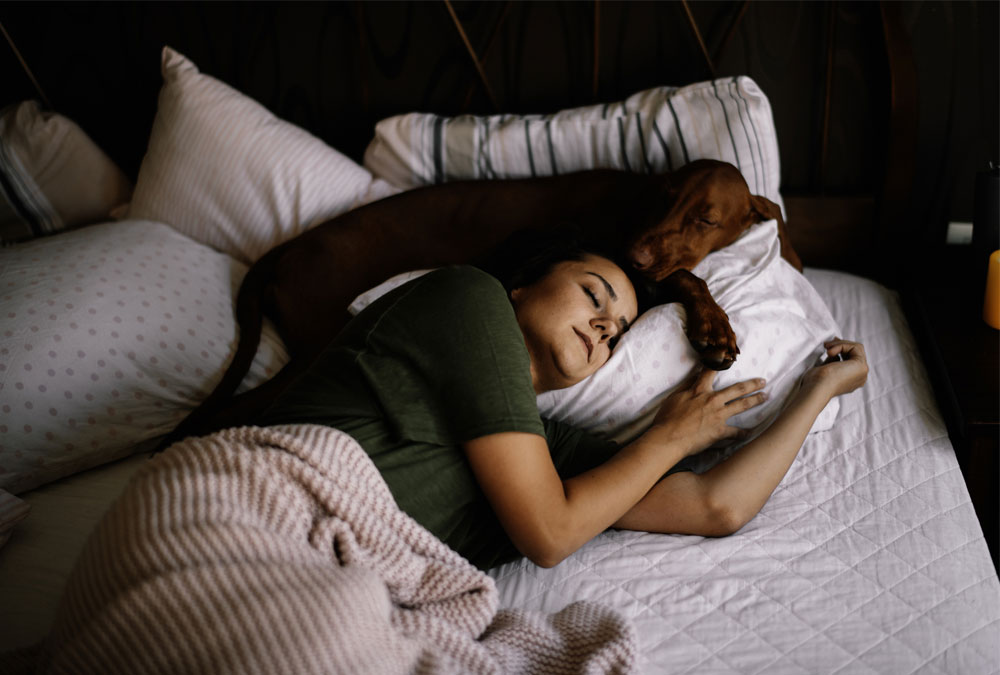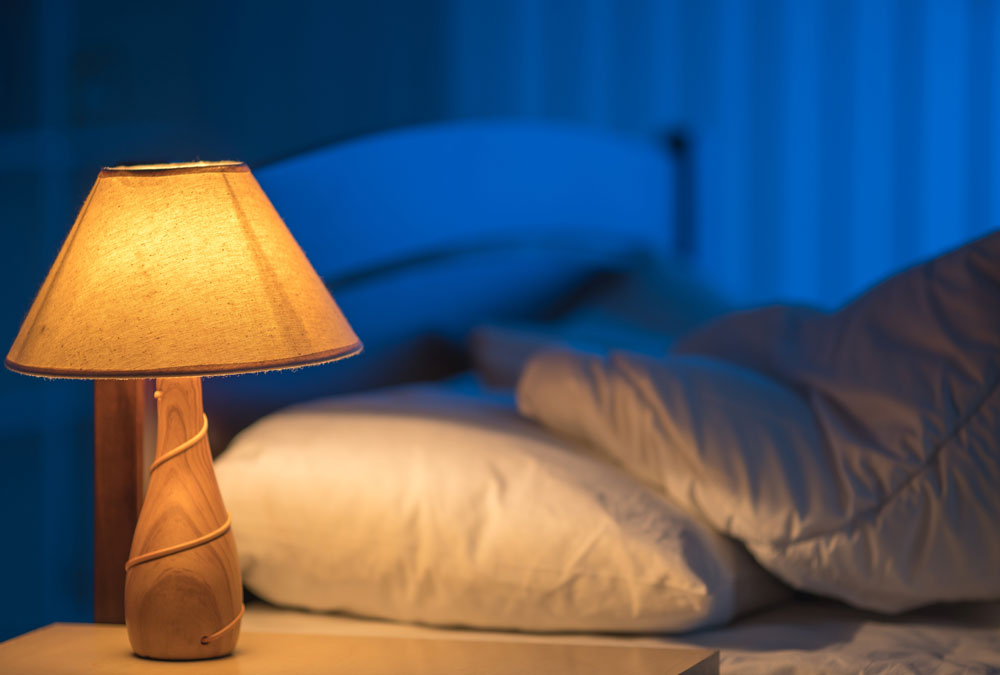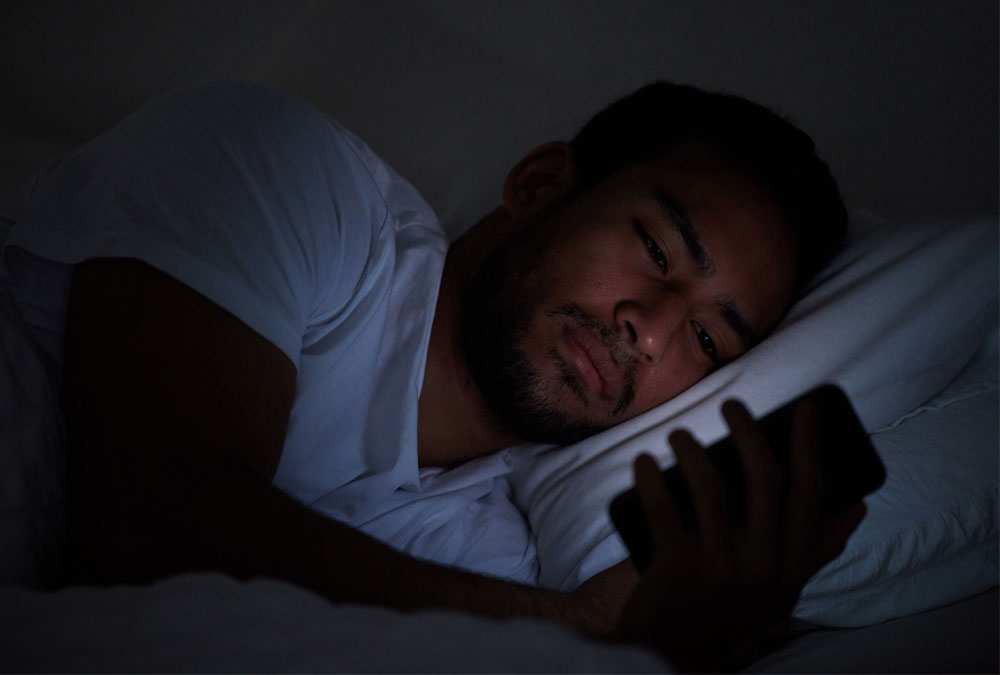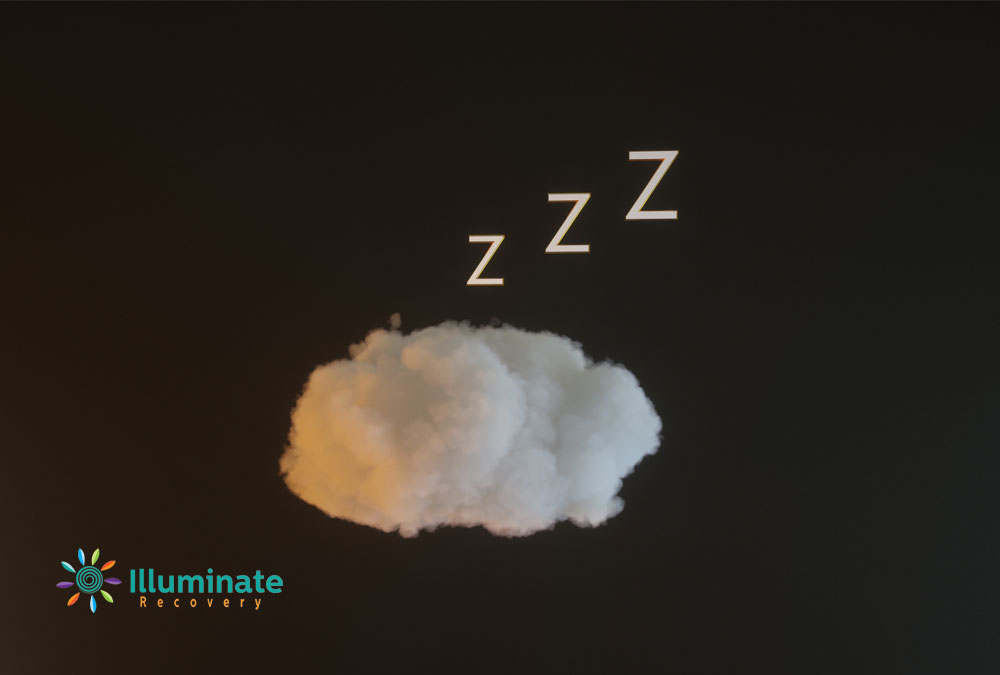You’ve likely heard countless times how crucial it is to get a good night’s sleep. The “good sleep” advice begins the moment parents bring a new baby home from the hospital and continues well throughout adult life. Still, all this advice comes for a good reason—no matter where you are in life, getting enough good quality sleep every night can prevent a number of physical and mental health issues.
If you’re currently in recovery from substance use disorder (SUD), you may wonder how your sleep may be affected by the recovery process. You already know that SUD can severely impact your everyday life, including sleep. In recovery, sleep is even more crucial as you continue to heal from past trauma and build new, healthy habits.
The importance of sleep in addiction recovery cannot be understated. If you’re currently recovering from SUD, learn more about why sleep is so important and how to get more of it in recovery.
Why Is Sleep Important for Addiction Recovery?
Using and withdrawing from substances can negatively affect how you sleep, as you’ve likely experienced. Frequently using substances can alter the way neurotransmitters in your brain work and disrupt how they respond to certain stimuli. Worse, many people turn to substance use in an attempt to re-adjust this disrupted sleep-wake cycle, which can force the brain to rely on the substance to achieve sleep. No wonder it can be difficult to achieve quality, lasting sleep when you reach recovery.
Unfortunately, people with SUD are ten times more likely to struggle with a sleep disorder. These individuals are even more likely to have a history of substance use to help with their sleep, only to then develop SUD as well. Many individuals with insomnia fall into this routine, and not only does this cause more complications, but this can lead to cognitive impairments as well.
Not getting enough sleep at night can negatively affect your mental health, and many people with SUD who struggle to sleep can eventually relapse. In addition, sleep is important to help the brain and body heal from the emotional and physical effects of substance use. Sleep has a drastic impact on important neurotransmitters and other hormones in the brain and body, and restoring this balance is crucial for sustained recovery.
The Risks of Not Getting Enough Sleep

If you’re not sleeping enough at night during recovery, you risk developing—or redeveloping—a variety of physical and mental health issues. Everyone reacts to lack of sleep differently, but here are some potential issues that can arise when you are not getting enough sleep
Cognitive Impairments
Sleep deprivation causes a variety of cognitive impairments. Judgement skills may deteriorate for those in recovery, making relapse more likely. Not sleeping enough can also lead to irritability and impulsivity, which, coupled with poor judgment, can make you more likely to take risks without considering the consequences. Lack of sleep can also cause issues with concentration, as your attention shifts to how tired you are rather than the tasks and situations at hand.
Anxiety and Depression
Stressing over the present or future can cause people to lose sleep at night, as they stay up worrying about how the next day will go. People with depression constantly feel hopeless or sad, can struggle to concentrate on the present, and can lose interest in what they love doing. These symptoms can result in insomnia and even relapse.
People with anxiety often struggle to fall asleep due to worrying about the past or future. Some individuals who have had negative experiences with sleep, such as intense nightmares, may avoid going to sleep at all due to anxiety. The reverse can also be true—lengthy bouts of insomnia can increase anxiety or depression. In this way, poor sleep and mental health issues can be a vicious cycle.
Obesity
Getting an adequate amount of good quality sleep at night is important for staying healthy. Perhaps it’s no surprise that not sleeping enough can actually cause weight gain.
This is often due to several factors:
- Irregular mealtimes and snacking
- Increased instances of eating out due to lack of energy or motivation to create healthy meals
- More time to eat at night due to staying awake longer
- Less physical activity during the day, as people with insomnia often lack energy due to not sleeping
It is also worth mentioning that obesity and SUD share many qualities. For example, some people use food as a way to cope with stress, just as others use substances. Others may use substances to cope with their obesity, which only causes further negative thinking and consequences. Both SUD and obesity can be the result of social circumstances, past trauma, or even genetics.
Excessive Sleepiness
As you might suspect, not getting enough sleep at night can make people incredibly sleepy during the day. In the worst-case scenarios, sleepiness can become dangerous or even fatal, as reaction times can slow, which can lead to an accident. Drowsiness can also affect the sense of balance. Since the brain isn’t as alert when sleepy, you’ll be more prone to other physical accidents, such as tripping and falling. In the best-case scenario, sleepiness will reduce your productivity, creativity, and quality of work.
Sleep Problems and Substance Use Disorder (SUD)
Let’s take a deeper look at how poor sleep and SUD are related. The main factor that links SUD and sleeping is the release of dopamine, which is the “feel-good” neurotransmitter released when exercising, listening to your favorite music, or using certain substances. It is a critical component of the brain’s reward system because dopamine makes you feel better mentally and physically. People take part in activities like exercise and music partially because of the feelings produced by the dopamine release and may engage in substance use to boost the dopamine response.
However, dopamine also has one other function: regulating sleep. If dopamine levels are irregular or inconsistent, getting to sleep, staying asleep, and getting good quality sleep can become a struggle. As substance use disorder continues to stand in for the body’s natural dopamine response, the brain will reduce its dopamine production, further disrupting sleep. Unfortunately, the worse sleep struggles become, the more likely some people are to continue using substances in an attempt to achieve sleep.
How Much Sleep Do You Need During Addiction Recovery?
If you want to improve your chances of sustaining recovery, it is recommended to sleep roughly eight hours a night with no interruptions. While this recommendation is no different than that for people without SUD, sleep appears to be especially important as you recover. One study shows that people who struggle to sleep well at night are twice as likely to relapse during recovery. For that reason, proper sleep and addiction recovery go hand-in-hand.
In addition, it’s important to consider that the withdrawals and intense cravings that can occur at the beginning of recovery can make getting enough sleep even more important. Your body is still craving your substance of choice nearly all day, every day, and it can be challenging to sleep properly when your body doesn’t have what it wants. However, taking active steps to improve sleep without the use of substances can help you reach and sustain recovery.
Sleeping During Addiction Recovery

Of course, the recovery journey doesn’t end when you leave a rehabilitation program. Instead, it should be considered a lifelong journey. You’ll face new challenges ahead of you, but you’ll be more prepared to face them head-on with the tools you’ve developed during treatment. This includes struggles with sleep.
If you’re currently in recovery and are unsure what you can do to get quality sleep without the use of a substance, here are some tips to get you started.
Set a Sleep Schedule
Taking the time to establish a sleep schedule can help you ensure you allot yourself enough time at night to get an adequate amount of quality sleep. It’s also important to go to bed and wake up at the same time every day, which can help your body develop a natural routine and prepare itself to go to sleep when it’s time. Setting and following a sleep schedule can also build discipline, which is a fantastic quality to have in the recovery process.
Destress Before Bed
It will be much more difficult to fall asleep when you’re still fired up after playing an exciting video game or watching a movie. Likewise, if you had a rough day and are still stressed over what happened, you may find yourself ruminating over it all rather than sleeping. If you find yourself in either scenario, be sure to take time to destress before bed. Take a warm bath or shower to help you relax. You can also try meditation to help you relax and focus on your breathing.
Avoid Electronics at Bedtime
If you tend to look at your phone frequently, consider turning it off an hour or so before bed. According to Harvard Medical School, the blue light emitted by most electronics, including your phone, can prevent you from falling asleep. Worse, checking emails and text messages right before bed can cause you to ruminate over those messages. Be sure to turn off the electronics, relax, and prepare for quality sleep.
Reschedule Your Exercise Routine
Exercise is an essential activity during the recovery phase, but exercising close to bedtime can boost your energy levels when you need them the least, preventing you from sleeping. If you enjoy working out, avoid working out for at least 90 minutes before bedtime. Ideally, try to schedule your workouts more than three hours before bed. By moving your workouts earlier in the day, you’ll have more energy throughout the day, and you’ll have an easier time falling asleep at night. Also, if you exercise outdoors, the natural sunlight can boost your mood and make it easier to fall asleep at night.
Create a Calming Bedroom
Your sleep quality isn’t solely based on how you’re sleeping but also on where you’re sleeping. If little noises keep you up at night, do your best to limit the source of the noise, or consider using earplugs to block it. Blackout curtains can help you reduce intruding light from outdoor sources, and white noise can help you drown out incidental noises and feel a sense of calm.
Use Your Bed for Sleeping Only
Unfortunately, doing other activities in bed, such as working or watching TV, can make it so your body and brain do not associate your bed with sleep. When you use your bed only to sleep, your body and brain are already prepared to go into rest mode the moment you get into bed. Reserve your bed for sleep only and use a couch or chair for other activities.
Consider Sleep Aids
For people with SUD, sleep aids can take the form of natural solutions, over-the-counter medications, or non-addictive prescription aids. Natural supplements like melatonin can be taken to help you fall asleep. You can also speak with your doctor about taking a prescription sleep aid but be sure to disclose your medical history and state that you’re in recovery so your doctor can find the best solution for you. A doctor may also have alternative suggestions for getting better sleep as you continue your recovery journey.
Illuminate Recovery Can Help

Recovery is a lifelong journey with many challenges, and most people recovering from SUD experience difficulties with sleep at some point or another. However, sleep issues don’t have to be daunting or overwhelming. Consulting with a professional at Illuminate regarding long-term recovery can help you find alternative, healthy solutions.
Sources
- National Center for Biotechnology Information. (2010). Sleep quality and emotions affect opioid addiction recovery. Retrieved from https://www.ncbi.nlm.nih.gov/pmc/articles/PMC2936493/
- Harvard Health Publishing. (2012). Blue light has a dark side. Retrieved from https://www.health.harvard.edu/staying-healthy/blue-light-has-a-dark-side
- Harvard T.H. Chan School of Public Health. (n.d.). Sleep and obesity. Retrieved from https://www.hsph.harvard.edu/obesity-prevention-source/obesity-causes/sleep-and-obesity/
- Penn State University. (2022). Sleep quality and emotions affect opioid addiction recovery. Retrieved from https://www.psu.edu/news/research/story/sleep-quality-and-emotions-affect-opioid-addiction-recovery/

Having been on both sides of active addition, both the person using, and the person affected by a loved one using drugs and alcohol, Lucas has been involved in recovery since 2009. He has been working in the treatment industry since 2013. Using his personal experience and wealth of knowledge learned from professional development and immersion in the recovery field, he has spoken with thousands of families and helped hundreds of people attain long-term sobriety. In 2020, the opportunity presented to join in and start Illuminate Recovery. Understanding the importance of personalized treatment plans and the complex nature between substance abuse and co-occurring disorders, has helped Illuminate Recovery build a strong curriculum and a phenomenal staff. Illuminate Recovery now has a medical doctor who is board certified in addiction medicine and a psychiatric medical doctor who works side by side with independently licensed therapists to provide compassionate and effective treatment.

